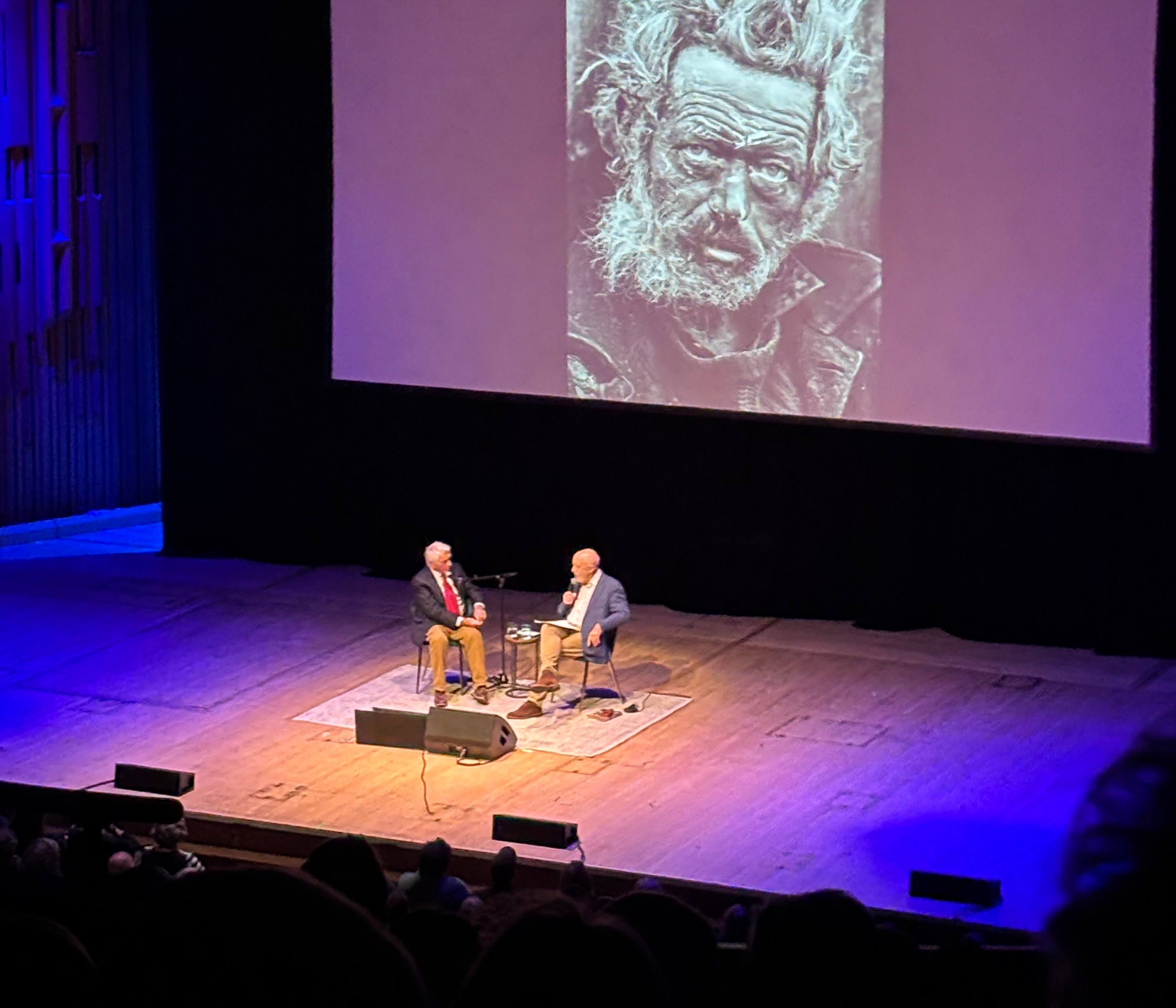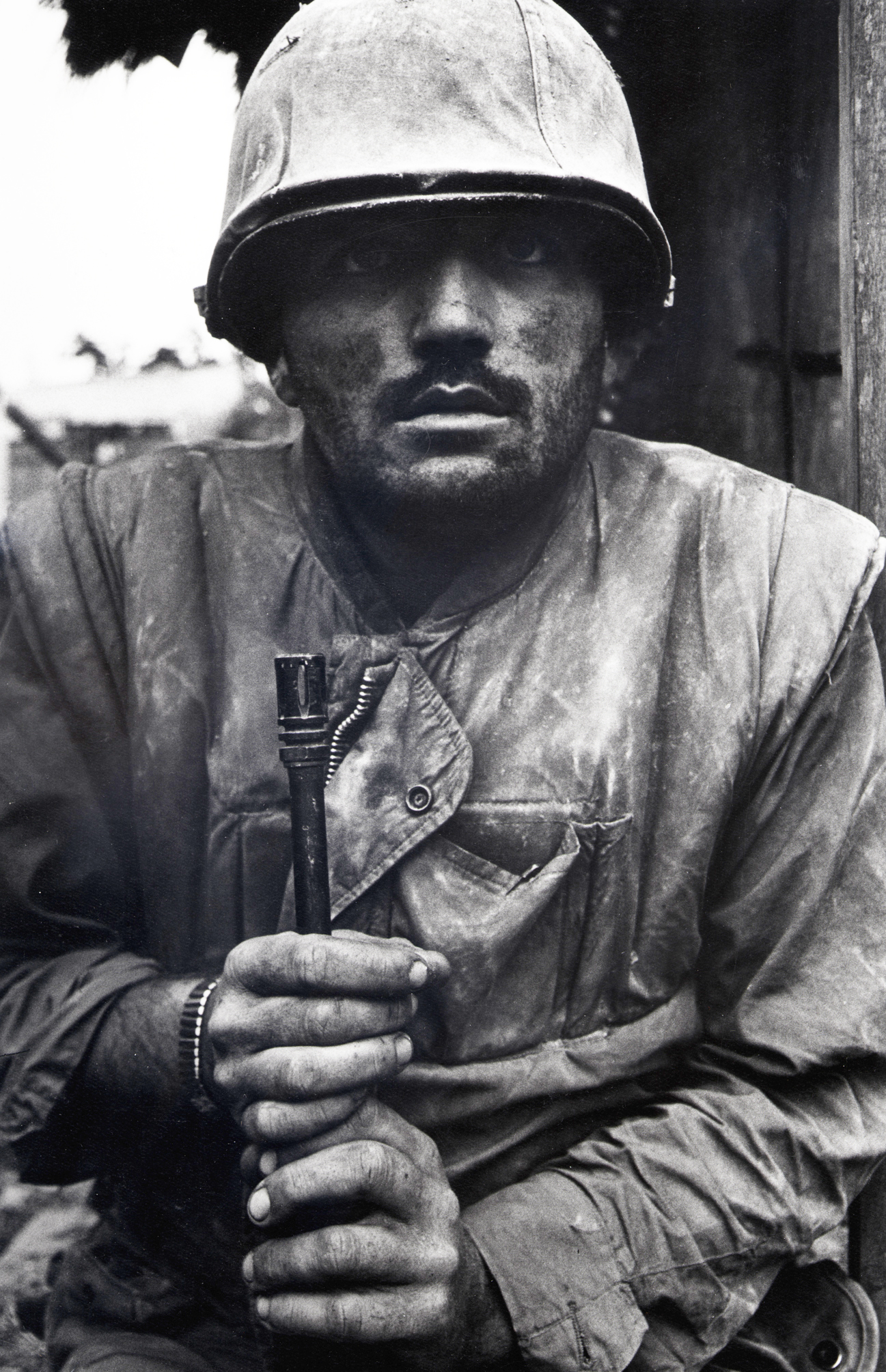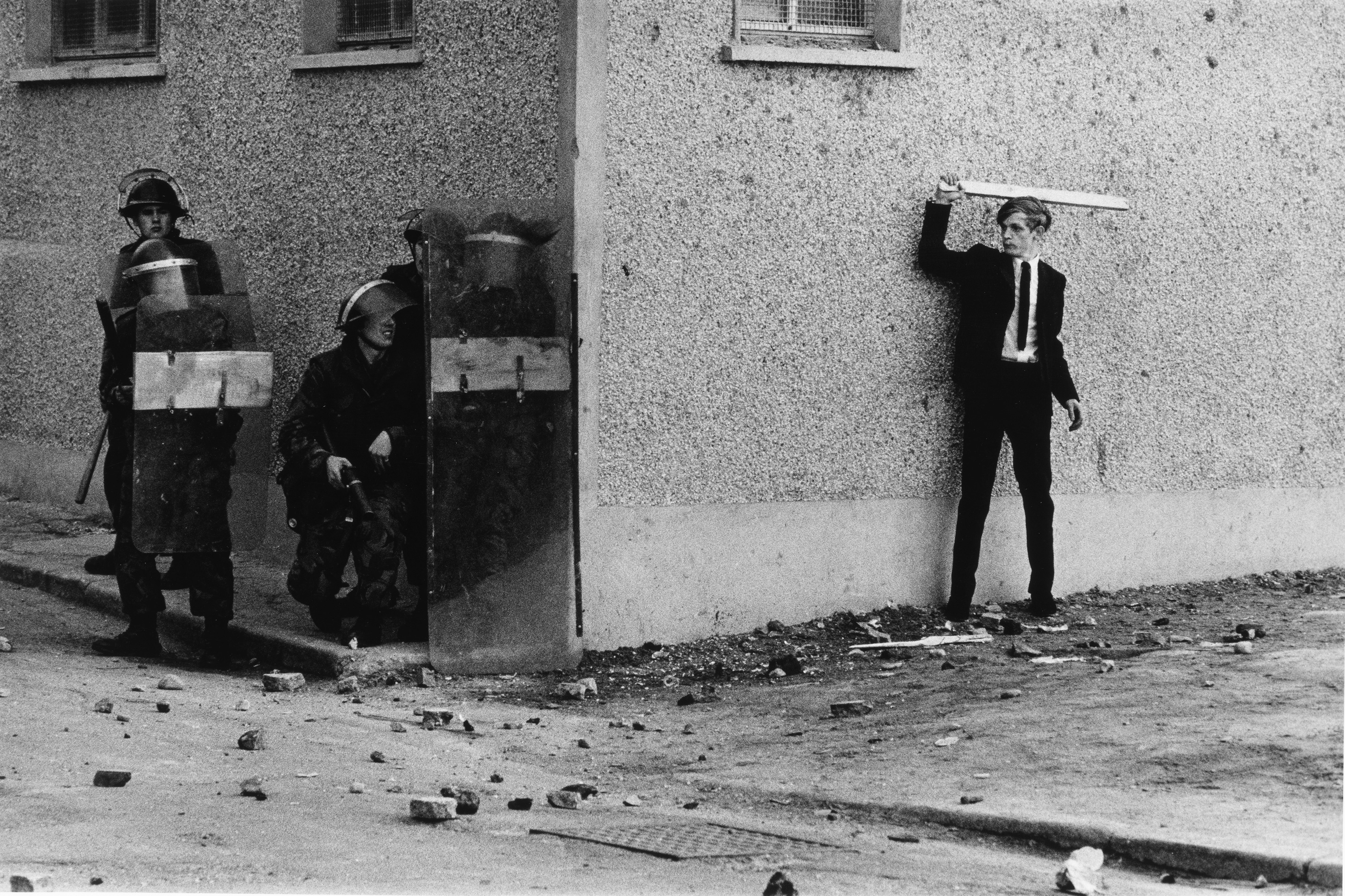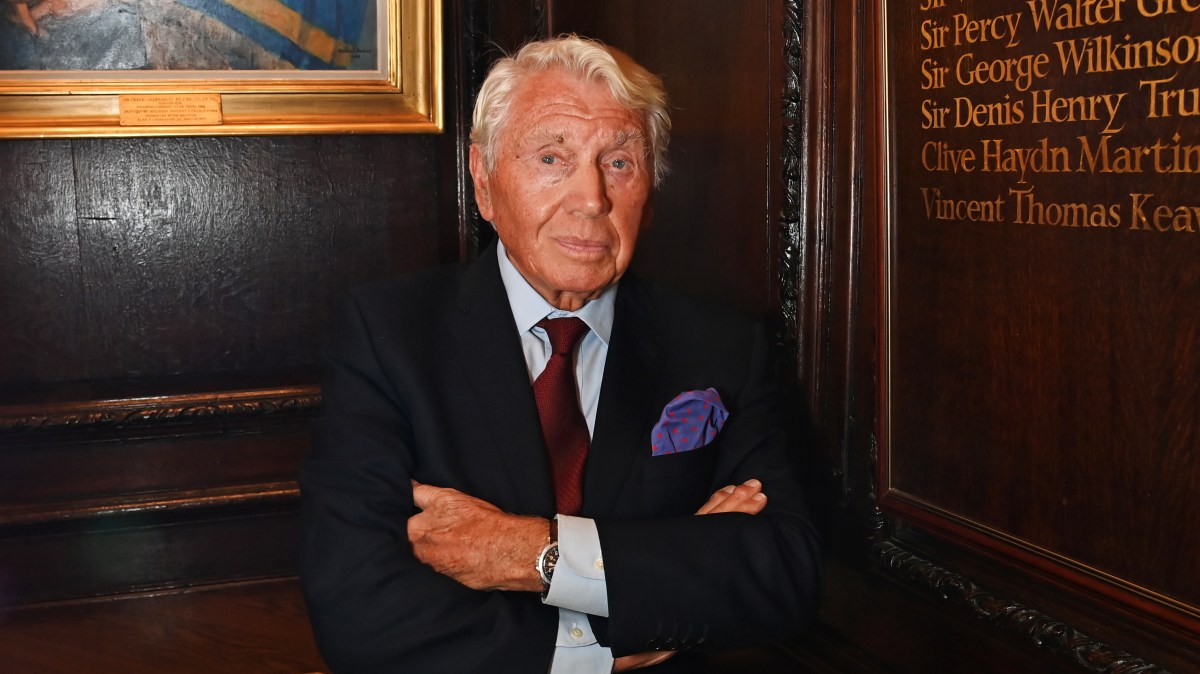The celebrated war photographer Sir Don McCullin has said the wars in Ukraine and Gaza have left him with “no faith in humanity” and believing his life’s work was “a waste of time”.
McCullin, 90, who lives in Somerset, covered dozens of conflicts and humanitarian crises over a 60-year career and is best-known for his images of the Vietnam War.
Asked what he was optimistic about, McCullin replied: “Absolutely nothing, actually. I have no faith in humanity. I feel selfishly aware of the fact that I’ve probably got two or three years left at my age.

McCullin in conversation with Jeremy Bowen at the Barbican in London last week
JOSHUA BRATT
“I’ve just passed my 90th birthday. I’m really ashamed that we haven’t achieved anything in the media. We haven’t changed anything. What have I been doing for the last 60 years? Totally wasting my time.”
Regarding ongoing wars, he added: “We can’t do anything about it, that’s the problem. The people who can do things like, for instance, Mr Trump, who could have changed so much this year with the two ongoing wars, and he wants to turn one of the areas of war into a kind of Florida, a gutter.”
• Don McCullin: ‘None of my photographs made any difference’
His comments, made in front of a packed audience at the Barbican last week, came amidst allegations that Donald Trump’s peace deal in the Russia-Ukraine war amounted to “capitulation” to President Putin.
At the same time, the peace deal in Palestine has had a shaky start with continuing violence in Gaza and the West Bank.
It was during his national service in the 1950s that McCullin, who grew up in Finsbury Park, north London, discovered photography, buying a £30 camera in Nairobi, where he was stationed.
In 1958 he took a photo of a London gang posed on a bombed-out building and sold it to The Observer, who asked him to keep going.
Within a decade he was the overseas correspondent for The Sunday Times magazine, lining up assignments including the Biafran War, the African Aids epidemic and Northern Ireland.

Starving twenty-four-year old mother and child, Biafra ,1968
DON MCCULLIN
However, it was his work in Vietnam that would make him the most famous photojournalist of his generation.
His 1968 picture of the shell-shocked US marine was taken in the Tet Offensive, and he later described it as a “silent protest about the futility of war”.

Shell-shocked US Marine, Vietnam, the Battle of Hue, 1968
DON MCCULLIN
Speaking last week, he reflected on how war journalism has changed, in particular with access to the front denied to journalists by the Israel Defence Forces and by the drones that haunt the Ukrainian lines.
“In the Vietnam War, the American army gave journalists carte blanche,” he said. “You could jump on a helicopter and get to those places. You can’t do it today though. You certainly cannot, they wouldn’t let you anywhere near it [the front].”
But his years of reporting, providing some of the most iconic pictures of war of the 20th century have left their scar.

The Bogside, Northern Ireland, Londonderry 1971
DON MCCULLIN
“Wars follow me to bed at night. I think about it every night I go to bed,” he told the audience, adding that the sights of death “are very deep in me. They get into my psyche and they never get out. That’s why I’m talking about this 50, 60 years later.
“It’s hard to forget these sights. You see, when people wake up in the morning, they don’t expect to get killed that day, so you see them and think, well he’s wearing green socks and look, he’s done up his shoelaces.

Local boys in Bradford, 1972
DON MCCULLEN
“We just turn up and expect, we can walk in amongst their lives and their grief and take pictures, and I’ve always been aware that I didn’t have the right in the beginning to do that.”
Earlier this year, aged 89, he returned to Syria with Anthony Loyd, The Times’s special correspondent, which he described as an “almost spiritual experience”.
But now he advises young photojournalists to avoid war. “If you want to go to war, go to some of our cities in England. There are social wars out there that need checking out,” he said.

